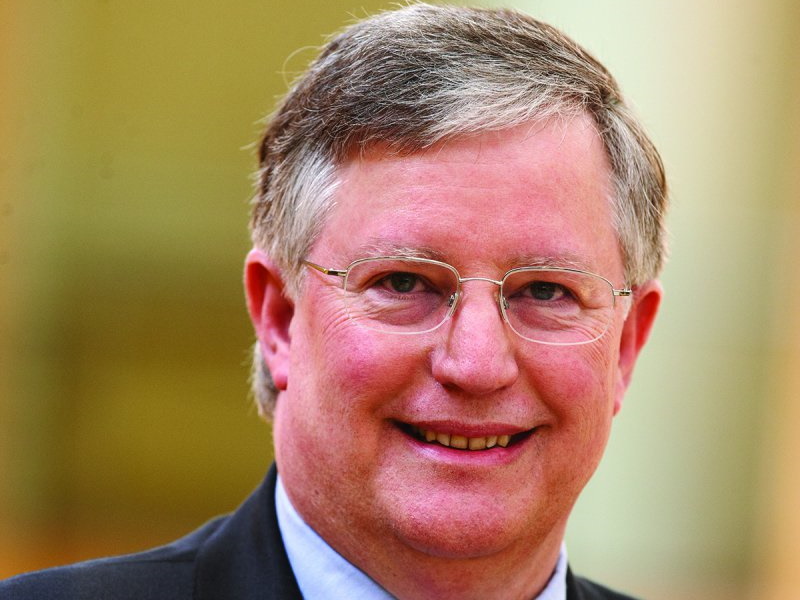Sexism And The Marquette Poll
Should pollsters test respondents agreement with statements deriding women?
Two startling questions in the latest Marquette University Law School Poll ask participants how much they agree with the following statements:
- Women seek to gain power by getting control over men
- Women exaggerate problems they have at work
The wording, poll director Charles Franklin explains, was chosen from a battery of 22 questions designed by psychologists to ferret out sexist views among poll respondents.
“It’s based on a great deal of political data, polling data and empirical evidence, that these two questions do a pretty good job of capturing sexist attitudes,” Franklin says.
“We’ve seen this before when we’ve asked a standard battery of questions about racism,” he tells the Examiner. “The opinions expressed in those racist items are pretty racist … But I don’t know how to measure racism without giving people a racist option if they want to pick it.”
Of the questions, he adds: “They’re not chosen willy nilly. They’re chosen after an enormous amount of scholarly research to demonstrate that these items are reliable and are predictive of other behaviors including behaviors in the political realm and how people evaluate female candidates.”
One reason Franklin wanted to ask the questions about sexism during the current election cycle, he says, is the presence of both Republican and Democratic female candidates in big, statewide elections this year, with former Lt. Gov Rebecca Kleefisch running in the Republican primary for governor, and State Treasurer Sarah Godlewski running in the Democratic primary for U.S. Senate.
“We actually get the opportunity here to see whether sexist attitudes work the same or work differently across the two parties,” Franklin explains.
Schaffner explains the categories of sexist attitudes measured by political scientists, including “hostile sexism,” which “seeks to justify male power, traditional gender roles, and mens’ expoitation of women as sexual objects through derogatory characterizations of women.” Another category, “Benevolent sexism” “relies on kinder and gentler justifications of male dominance” and “embraces a romanticized view of sexual relationships with women.”
Hostile sexism turns out to be the best predictor of sexist voting patterns, Schaffner finds. Following Schaffner’s lead, Franklin chose two questions meant to evaluate people’s hostile sexist views for his survey.
But does asking those questions potentially increase hostility toward female candidates and women in general?
Franklin thinks not. “I don’t think in this context, those [questions] are pushing people to express a view they don’t hold,” he says.
“It’s a question as old as polling, about whether the polls affect people’s behavior,” he adds. And while he concedes there are subtle effects — for example, asking people questions about their voting preferences seems to increase the likelihood that they will vote — “there don’t seem to be things that materially turn someone who has one attitude into someone with a different attitude,” Franklin says.
Amber Wichowsky, an associate professor of political science at Marquette University, agrees.
“There’s a lot of sexist discourse out there,” she adds — so the poll questions are unlikely to be anyone’s first encounter with sexist ideas.
The background to current polling on sexism, Wichowsky explains, are polls that have tracked changes in public opinion over time — including the rise of the gender gap. In the 1950s, she points out, women were more likely to identify as Republicans. That changed with the advent of the women’s movement and women’s entry into the workforce. “Early polls asked questions about whether a woman’s place was in the home,” Wichowsky says. As female labor force participation increased, fewer and fewer respondents agreed with statements that women do not belong in the workforce or in politics. “The public overwhelmingly rejected that,” Wichowsky says. But sexism didn’t go away.
Political scientists have developed new ways of getting at subtle sexist attitudes. One of these, called “modern sexism,” is the view that discrimination is a thing of the past.
Research ahead of the 2016 election showed that white Republican women scored high on the “modern sexism” scale and were much more likely to vote for Trump — which they did — in greater numbers than white women voters who chose Clinton. “At the time, there were all these questions about, ‘How is that possible?’” says Wichowsky. Polls helped clarify the answer.
Wichowsky says she appreciated the debate about the sexism questions in the latest Marquette Poll that she watched unfold on Twitter. She found it “really healthy” to push researchers, including her, to think about “how does the public receive and understand and make sense of public opinion research?”
“Part of the problem is that neither Kleefisch nor Godlewski are very well known to the public yet,” he says — with close to half of voters saying they don’t know enough to have an opinion of either candidate.
“I’m carrying these questions through the primary at least and, depending on who wins the primaries, maybe into the fall,” he says, “because we want to accumulate the data across the entire year to see what those effects are.”
The public will have to wait for the analysis, “But it’s definitely coming,” Franklin says.
One motivation for exploring sexism as a theme, he adds, was the 2018 Senate primary, in which voters who knew nothing about the candidates strongly preferred the man in the Republican race (Kevin Nicholson) to the woman (Leah Vukmir). But once voters got to know the candidates, that effect vanished, and Vukmir won the primary (only to be defeated by Democratic Sen. Tammy Baldwin in the general election).
“Getting to know her [Vukmir], and having an opinion of her seemed to mitigate [sexist bias],” says Franklin. “But in the absence of other information, gender issues seem to play a big role.”
This year, for the first time, the Marquette poll will include an independent measure of gender attitudes, to help shine a light on what happens in 2022.
Sexism and the Marquette Poll was originally published by the Wisconsin Examiner.






















Here we go with another article about “everybodys sexist” “everybodys racist”…lol. I think its probably far past time to stop focusing on this and to just treat each other as human beings. We should not worry about race, sex, religion, ect. Enough trying to divide and categorize people for political gain!